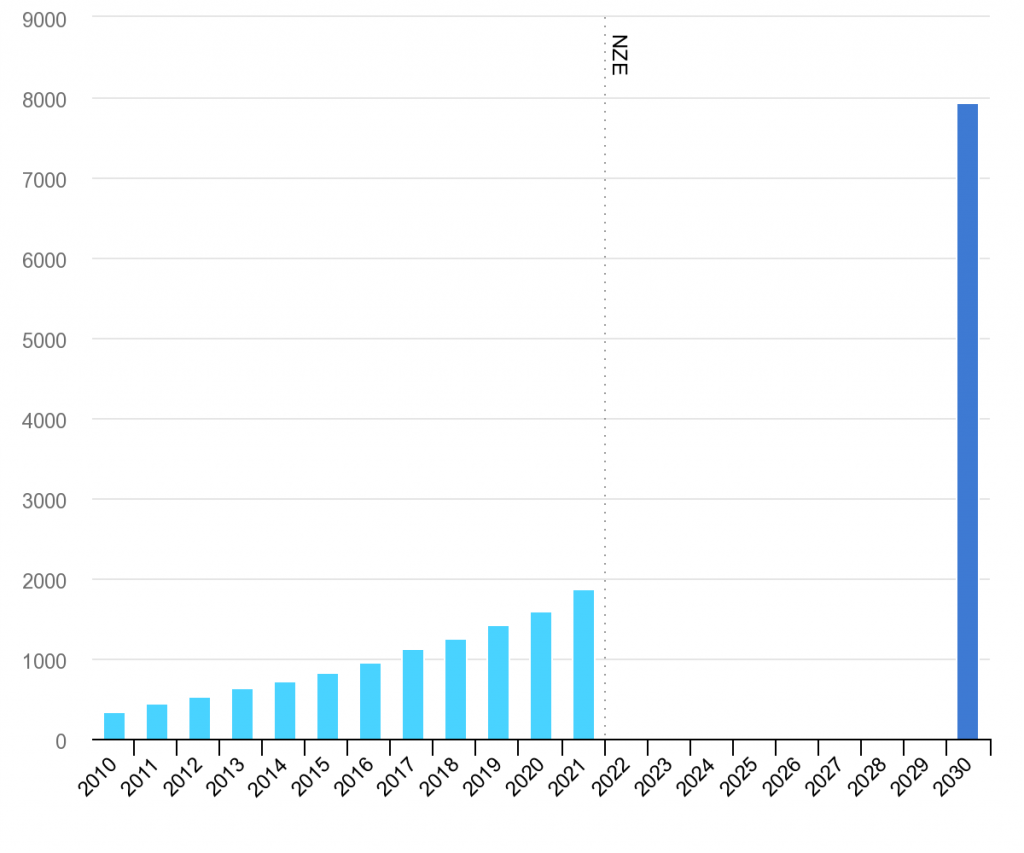Solar PV still dominates renewable energy capacity additions despite rising prices
Even with surging commodity prices increasing manufacturing costs for solar PV, its capacity additions are forecast to grow by 17% in 2021. This will set a new annual record of almost 160 GW. Solar PV alone accounts for 60% of all renewable capacity additions, with almost 1 100 GW becoming operational over the forecast period in our main case, double the rate over the previous five years. In a significant majority of countries worldwide, utility-scale solar PV is the least costly option for adding new electricity capacity, especially amid rising natural gas and coal prices. Utility-scale solar projects continue to provide over 60% of all solar PV additions worldwide. Meanwhile, policy initiatives in China, the European Union and India are boosting the deployment of commercial and residential PV projects.
Renewable electricity capacity growth by technology, main and accelerated cases, 2015-2020 and 2021-2026








